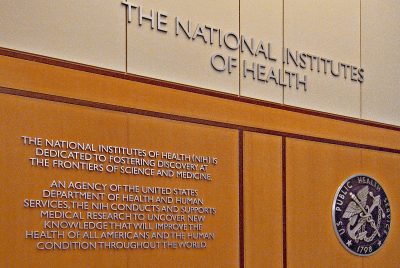NIH Failed to Promptly Release Documents Concerning “Gain of Function/Gain of Threat” Research on Influenza, MERS, SARS, and COVID

All Global Research articles can be read in 51 languages by activating the “Translate Website” drop down menu on the top banner of our home page (Desktop version). Visit and follow us on Instagram at @crg_globalresearch.
***
Last week, Center for Food Safety (CFS) filed a Freedom of Information Act (FOIA) lawsuit against the National Institutes of Health (NIH), an agency with the Department of Health and Human Services (HHS).
CFS is suing the agency over its failure to release government documents related to the approval and issuance of NIH contracts and grants that fund research projects involving controversial gain of function/gain of threat studies with dangerous, so-called “enhanced potential pandemic pathogens.”
“The NIH’s refusal to make public the research it is funding to enhance the transmissibility, infectiousness, and lethality of potential pandemic viruses is grossly irresponsible,” said Andrew Kimbrell, executive director of Center for Food Safety. “We are litigating to get that information because transparency and public knowledge about these highly hazardous experiments could be an important step in avoiding the next pandemic.”
An enhanced, “laboratory-generated” potential pandemic pathogen results from the enhancement of a potential pandemic pathogen’s transmissibility or virulence in humans. Gain of function/gain of threat studies, or research that improves the ability of a pathogen to cause disease, is a subset of life sciences research that most commonly involves the creation or use of enhanced potential pandemic pathogens.
CFS’s lawsuit focuses on the agency’s withholding of records concerning NIH’s funding of proposed research that could create, transfer, or use enhanced potential pandemic pathogens for which additional review under HHS’ Framework for Guiding Funding Decisions about Proposed Research Involving Enhanced Potential Pandemic Pathogens (HHS P3CO Framework) is required.
“FOIA requires NIH to release records promptly. Unfortunately, the agency has failed to comply with FOIA’s statutory deadlines with respect to our request,” said Victoria Yundt, staff attorney at Center for Food Safety. “Consequently, NIH has unlawfully deprived the public of its statutory right to obtain records containing crucial information about government approval and funding of new and continued gain of function/gain of threat studies that consist of creating, transferring, or using enhanced potential pandemic pathogens in U.S. laboratories, which—if released from a laboratory accident—could result in catastrophic consequences to the human environment.”
Without the requested records, CFS cannot determine how many gain of function/gain of threat projects have been funded by the NIH, nor how many of these projects have undergone the proper review or comply with other federal laws and regulations.
NIH’s unlawful withholding of public records undermines FOIA’s basic purpose of government transparency. CFS has a history of suing the federal government to compel agencies to be compliant with FOIA. CFS’s FOIA program is committed to upholding the principles embodied in FOIA, such as maintaining an open and transparent government.
*
Note to readers: Please click the share buttons above or below. Follow us on Instagram, @crg_globalresearch. Forward this article to your email lists. Crosspost on your blog site, internet forums. etc.
Featured image is from Public Domain

